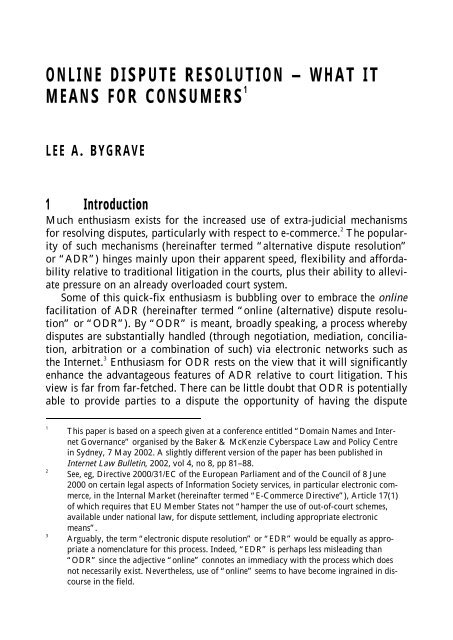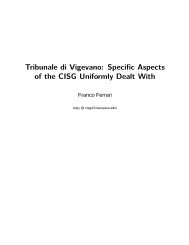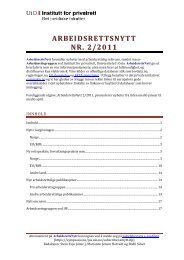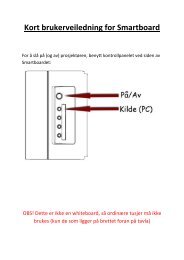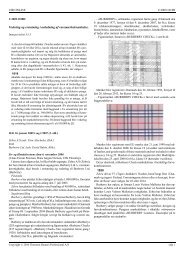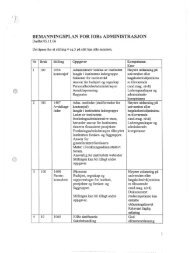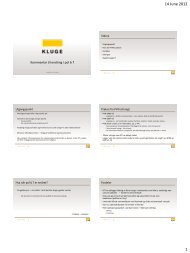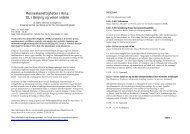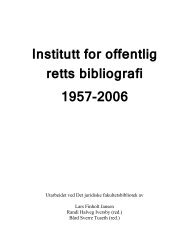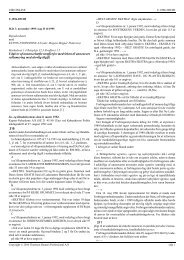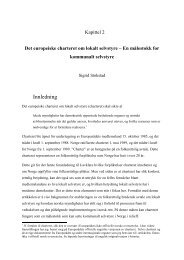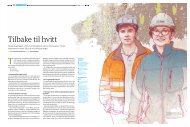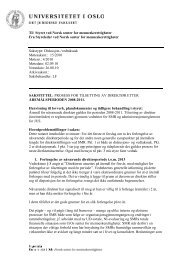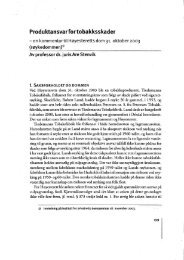Lee A. Bygrave (red.) YULEX 2002 - Universitetet i Oslo
Lee A. Bygrave (red.) YULEX 2002 - Universitetet i Oslo
Lee A. Bygrave (red.) YULEX 2002 - Universitetet i Oslo
Create successful ePaper yourself
Turn your PDF publications into a flip-book with our unique Google optimized e-Paper software.
ONLINE DISPUTE RESOLUTION – WHAT IT<br />
MEANS FOR CONSUMERS 1<br />
LEE A. BYGRAVE<br />
1 Introduction<br />
Much enthusiasm exists for the increased use of extra-judicial mechanisms<br />
for resolving disputes, particularly with respect to e-commerce. 2 The popularity<br />
of such mechanisms (hereinafter termed “alternative dispute resolution”<br />
or “ADR”) hinges mainly upon their apparent speed, flexibility and affordability<br />
relative to traditional litigation in the courts, plus their ability to alleviate<br />
pressure on an already overloaded court system.<br />
Some of this quick-fix enthusiasm is bubbling over to embrace the online<br />
facilitation of ADR (hereinafter termed “online (alternative) dispute resolution”<br />
or “ODR”). By “ODR” is meant, broadly speaking, a process whereby<br />
disputes are substantially handled (through negotiation, mediation, conciliation,<br />
arbitration or a combination of such) via electronic networks such as<br />
the Internet. 3 Enthusiasm for ODR rests on the view that it will significantly<br />
enhance the advantageous features of ADR relative to court litigation. This<br />
view is far from far-fetched. There can be little doubt that ODR is potentially<br />
able to provide parties to a dispute the opportunity of having the dispute<br />
1<br />
This paper is based on a speech given at a conference entitled “Domain Names and Internet<br />
Governance” organised by the Baker & McKenzie Cyberspace Law and Policy Centre<br />
in Sydney, 7 May <strong>2002</strong>. A slightly different version of the paper has been published in<br />
Internet Law Bulletin, <strong>2002</strong>, vol 4, no 8, pp 81–88.<br />
2<br />
See, eg, Directive 2000/31/EC of the European Parliament and of the Council of 8 June<br />
2000 on certain legal aspects of Information Society services, in particular electronic commerce,<br />
in the Internal Market (hereinafter termed “E-Commerce Directive”), Article 17(1)<br />
of which requires that EU Member States not “hamper the use of out-of-court schemes,<br />
available under national law, for dispute settlement, including appropriate electronic<br />
means”.<br />
3<br />
Arguably, the term “electronic dispute resolution” or “EDR” would be equally as appropriate<br />
a nomenclature for this process. Indeed, “EDR” is perhaps less misleading than<br />
“ODR” since the adjective “online” connotes an immediacy with the process which does<br />
not necessarily exist. Nevertheless, use of “online” seems to have become ingrained in discourse<br />
in the field.


